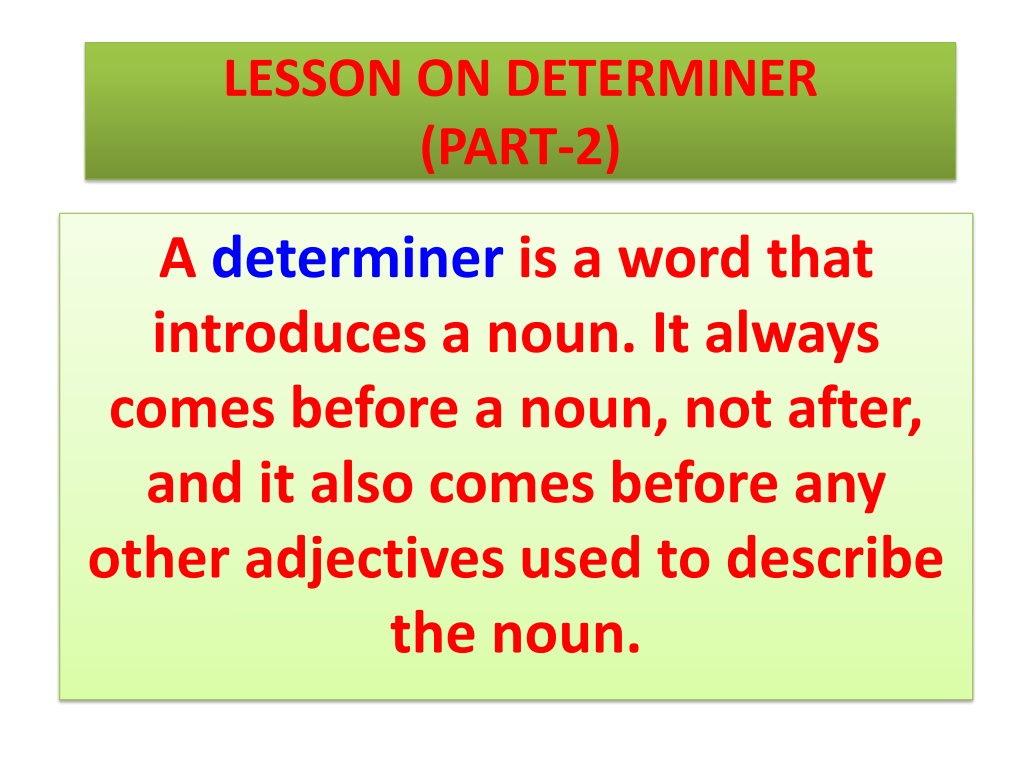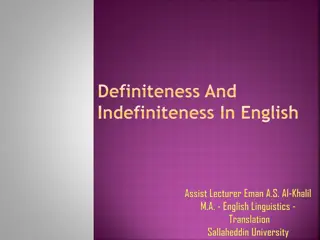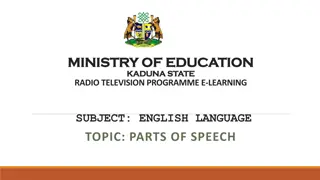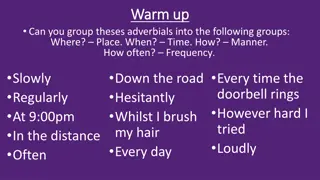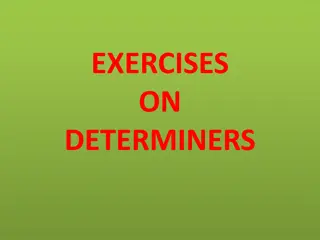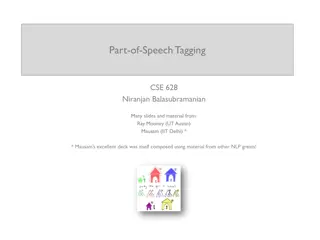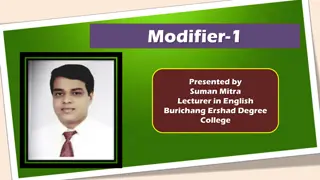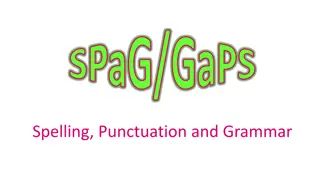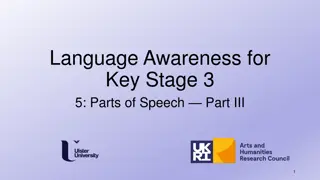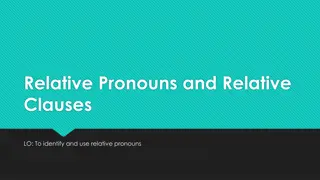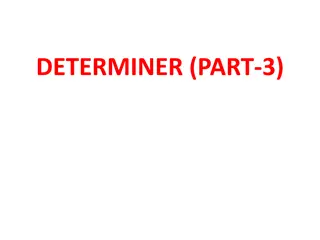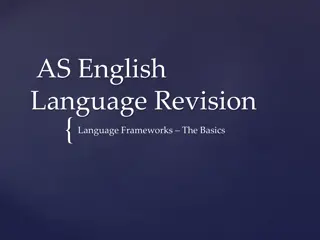Understanding English Determiners: Part 2
In this lesson, you will delve deeper into determiners in English, focusing on the types such as articles, demonstratives, quantifiers, and possessives. Specific examples and usage scenarios of determiners like "some," "any," "little and much," "few and many," "more, less, and fewer," and "either and neither" are explained with clarity through text and visual aids.
Download Presentation

Please find below an Image/Link to download the presentation.
The content on the website is provided AS IS for your information and personal use only. It may not be sold, licensed, or shared on other websites without obtaining consent from the author. Download presentation by click this link. If you encounter any issues during the download, it is possible that the publisher has removed the file from their server.
E N D
Presentation Transcript
LESSON ON DETERMINER (PART-2) A determiner is a word that introduces a noun. It always comes before a noun, not after, and it also comes before any other adjectives used to describe the noun.
There are four different types of determiners in English: Articles, Demonstratives, Quantifiers, Possessives.
Some The indefinite adjective Some is generally used in affirmative sentences with uncountable and plural countable nouns. There is some proof that he is guilty. I have some good ideas on the project. It can also be used in question where Yes is expected as an answer Would you like some tea? Could you give me some food?
Any It is used in questions It is also used in negative sentences where we want to say that something does not exist I don t need any help. Do you have any advice on the matter? It is used in affirmative sentences before plural nouns and uncountable nouns when it refers to a quantity of something which may or may not exist. You can stop at any point you like.
Little and Much These are used to refer to amount or quantity. Little refers to -a small amount of something Much refers to- large quantities. Both are used with uncountable nouns. I want to spend a little time in Dubai. I have studied very little for my exam. Do you like to watch much television?
Few and Many These are mostly used to refer to a number. (plural countable nouns) Few emphasizes a smaller number many refer to more numbers Example: Few students came for the class today. Many people went to welcome the Indian Cricket team. They stayed in the U.S.A for a few days.
More, Less and Fewer They are mostly used as comparative determiners. More is used before plural and uncountable nouns (with than) Less is used to refer to an amount that is less than another amount. Fewer refer to a group of things that are smaller than another group Example: He does much more cardio than I do. The poor have less access to cleanliness. There are fewer cars here.
Either and Neither Either and Neither usually refer to two persons or things but show that one out of the two is or is not involved in a situation. Example Take either side of the bed, both are the same. Neither of them is speaking the truth.
Each and Every These determiners are used to refer to all members of a group, persons or things. When we talk about members as individuals, we use each and when we make a statement about all of them we use every . They are to be prefixed before a singular countable noun and the verb attached with them should be singular. Example: Each and every board member was present in the meeting. Today a laptop and air conditioner can be seen in each house. Every child is said to have his/ her own special abilities.
Exercises based on Determiners- Fill in the blanks with suitable determiners: 1) ________ house is not mine. 2) I have ________ more files to complete. 3) She doesn t like him ________. 4) Nidhi answered ________ the questions wrong. 5) ________ the girls had to carry their own luggage. 6) I shall not buy ________ oranges. These are rotten. 7) I have bought ________ cycle. 8) I drive 10 Kms ________ day to reach my school. 9) We are expecting ________ guests tonight. 10) ________ of my answers were correct. So I passed. 11) Hello! ________is Nipun. Can I speak to Aman? 12) He spends ________ time on video games. 13) What is your sister doing ________ days? 14) I can speak ________ Hindi. 15) He had built ________ unique house. Answers will be shared tomorrow
